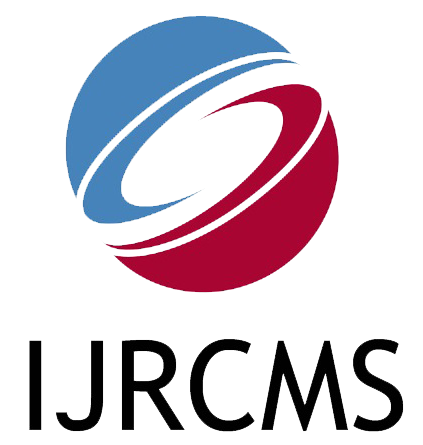| Title: EFFECTS OF APPLIED SCHOLASTICS’ STUDY TECHNOLOGY (APSST) ON CLASSROOM PRACTICES AND ACADEMIC ACHIEVEMENT OF SENIOR SECONDARY ONE STUDENTS OF SOLID FOUNDATION ACADEMY, PANKSHIN, PLATEAU STATE, NIGERIA |
| Author: Dr. Odewumi, A. Olatunde (Ph.D), Dr. Din, S. Sarki (Ph.D), Dr. Hemba, C. Emmanuel and Yakse, Abubakar |
| Abstract: The study investigated the effects of Applied Scholastics’ Study Technology (APSST) on classroom practices – namely: Lesson preparation; lesson delivery; sustenance of students’ interest; and handling of barriers to study – and academic achievement of Junior Secondary School (JSS) One student of Solid Foundation Academy, Pankshin, Plateau State, Nigeria. The quasi-experimental design was adopted for the study. The sample consisted of an intact group of 30 students and 4 teachers subjected to pre and post interventions classroom observations and an analysis of students’ terminal academic results. The instrument used for the study were: Lesson Delivery and Classroom Observation Schedule (LDCOS) and students’ terminal academic results. Data collected were analysed using mean, standard deviation, and t-test. The mean and standard deviation rate indicators of the effect of APSST on the improvement of teachers on the classroom practices indices measured maintained a positive progression across the board after exposure and deployment of APSST in the classroom. Also, the tested hypothesis proved significant improvements in all the classroom practice indices. Furthermore, the result revealed an improvement in students’ academic achievement based on the obtained mean in all the subject areas studied. Similarly, there was a significant impact of APSST on students’ achievement in English language, Mathematics, and Physics with the exception of Civic Education. Based on the remarkable results noticed of the effect of APSST in teaching and learning within the short period of the study, it is concluded that deployment of APSST in education is vital in achieving productive learning experience. |
| Keywords: Applied Scholastics, Study Technology, Classroom Practices, Academic Achievement. |
| DOI: https://doi.org/10.38193/IJRCMS.2023.5407 |
| PDF Download |
| References: Applied Scholastics (2002). Fundamentals of instruction course. St. Louis, M.O.: Effective Education Publishing. Applied Scholastics (2003). Study tools for educators. St. Louis, M.O.: Effective Education Publishing. Applied Scholastics (2005a). Student remedy pack. St. Louis, M.O.: Effective Education Publishing. Applied Scholastics (2005b). Progressive teaching tools. St. Louis, M.O. Effective Education Publishing. Applied Scholastics (2007). Fundamentals of Study Technology. St. Louis, M.O.: Effective Education Publishing. Applied Scholastics (2008). How to write a checksheet. St. Louis, M.O.: Effective Education Publishing. Ahmed, A.S. (2009). Study technology: A new approach to teaching and learning social studies. In A. Iyela, S. Ohanado, F.A. Umar (eds). Effective teaching across the curriculum. Kaduna: Hemo & Co Publishers, 190-201. Ahmed, A.S. (2020). Study technology: An innovative technique for teaching and learning Social Studies. In S. Jacob (Ed). Issues and techniques in Social Studies education in Nigeria. Pankshin: Academic Trust Fund. Brophy, J., & Good, T. (1986). Teacher behavior and student achievement. Handbook of research on teaching (3rd Ed). New York: Macmillan. 376-391. Darling-Hammond, L., Wise, A.E., & Pease, S.R. (1983). Teacher evaluation in the organizational context: A review of the Literature. Review of educational research, 53(3), 285-328. Doyle, W. (1986). Classroom organization and management. In M. Wittrock (Ed.), Handbook of research on teaching (3rd edition). New York: Macmillan. 392-431. Familoni, O.A. (2015). An ethnographic study of the Applied Scholastics training for school teachers in Ekiti State, South West of Nigeria. In Journal of Business and Economics. Vol.6. No. 12, 2137-2146. U.S.A. Academic Star Publishing Company. Felder, R.M. & Brent, R. (2005). Understanding student differences. Journal of Engineering Education, 94(1), 5-72. Hamachek, D.E. (1969). Motivation in teaching and learning. (What research says to the teacher). https://www.amazon.com Industrial Training Fund and United Nations Industrial Development Organization (2016). Skills gap assessment in six priority sectors of Nigeria’s economy. UNIDO 2017. Mishra, P., & Koehler, M. (2006). Technological pedagogical content knowledge: A framework for teacher knowledge. Teachers College Record, 108(6), 1017-1054. Odewumi, A.O. (2020). Classroom practices and sustainable development: The Applied Scholastics’ Study Technology approach. In S. Jacob (ed) Issues and techniques in Social Studies Education in Nigeria. Pankshin: Academic Trust Fund. https://www.worldbank.org/en/news/immersive-story/2019/01/22/pass-or-fail-how-can-the-world-do-its-homework Wikipedia (2021). Technological pedagogical content knowledge. (Online). Available at: https://en.m.wikipedia.org/wiki/Technological_pedagogical_content_knowledge (Retrieved on 25th May) |
International Journal of Research in Commerce and Management Studies (IJRCMS)
ISSN 2582-2292, An open access bi-monthly e-journal
